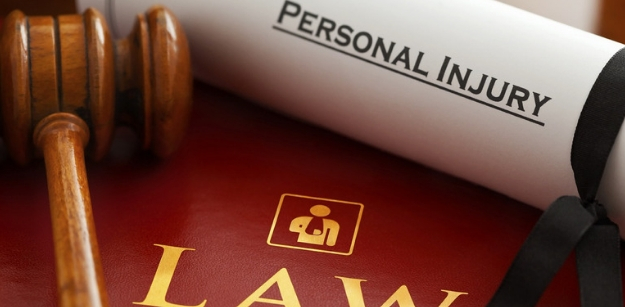To a normal person, legal matters can be confusing, especially due to the highly complex nature of legal terms and the overall litigation processes. Some people; however, assume that filing personal injury claims is not as demanding as other cases such as theft or murder. As much as this assertion may be true, it is important to understand the fundamentals of filing a personal injury claim successfully. After all, no one wants to waste time and resources without getting any form of compensation. Below are seven factors that you should consider before filing a personal injury claim.


1. Liability
Filing a personal injury lawsuit requires adequate planning, and consideration of factors such as liabilities. By filing a personal injury lawsuit, you are basically accusing the defendant of responsibility for your sustained injuries. Therefore, to avoid being countersued or facing further legal action from the defendant, it is prudent to have legitimate claims that can be proven in a court of law.
Put simply, you should ensure you accuse the right person for the exact offense that you believe was committed against you. For your case to even stand a chance, you must prove that, indeed, the accused was liable for the injuries sustained. Before approaching a professional lawyer to help you out, it is important to examine your situation and determine whether the party you want to accuse is responsible for the injury.
2. Extent of Loss
Before filing a personal injury claim, another important factor that you should consider is the extent of loss or losses. You must conduct an extensive evaluation on the extent of losses to ensure they are significant enough to warrant compensation and legal action. The litigation processes for personal injury can be long; as a result, it is advisable to weigh the benefits against the process.
Claims are more often than not successful in the event of tragic, life-changing accidents that have a direct impact on your life. Therefore, be sure to analyze factors such as the extent of the sustained injuries, the impact of the damages and the potential consequences of the injuries to your life. This will give you a view of what to expect in the event of a settlement and determine whether the case is worthy enough to pursue.
3. Statutes
In case you are not aware, there is a time limit for filing your personal injury claim. In most states, a claimant is usually given a grace period of two years to file. Therefore, it is important to consult your lawyer and inquire on the most appropriate time to file.
Although such statutes are similar in most states, you will need to inquire depending on your area of residence to ensure you are not caught off guard once you decide to file.
4. Location
Although not hugely important, location can play a pivotal role in determining the outcome of your personal injury case. Some states are more considerate to victims of personal injuries, more so when they have accused powerful corporates of wrongdoing. On the other hand, some states are known for not awarding large settlements; consequently, this can hinder the progress of your case, especially if you lacked strong reasons for filing.
Understanding the trends of personal injury settlements in your area of residence will ensure you can anticipate or predict the outcome of your case.
5. Availability of evidence
For your case to stand a chance as the legal battle ensues, you will need evidence or proof of liability on the side of the defendant. Of course, it is only natural for the defendant to prepare a strong defense in a bid to protect company image and prevent large payouts. Due to this, it is crucial for you to have unquestionable evidence that will prove the defendant’s liability.
If you do not have adequate evidence of liability, then you may need to look for witnesses or recover CCTV footage which can aid your case. In some situations, there may lack adequate proof of liability to warrant a compensation; however, with proper advice from your legal team, you can find ways to retrieve crucial evidence that can help put up a strong case.
6. Legal assistance
Before filing your personal injury claim, it is advisable to consult with a team of legal experts such as Foyle Legal. Remember, just as you go to a doctor for medical treatment, you also need expert assistance to ensure you stand a chance when the case reaches the courts. As mentioned earlier, the defendant, on most occasions, sets up a powerful defense team to nullify your claims.
Without a qualified legal team to give you counsel, you will be ill positioned to proceed with the case, let alone receive compensation. Also, when reporting the details of your case to your lawyer, be sure to provide true information as this will go a long way in determining the outcome of your case. Seeking legal assistance comes in handy, especially since your personal injury lawyer will explain different legal processes while also advising you on the most appropriate approach to follow.
7. Cost
To increase your chances of filing a personal injury claim successfully, you will need to practice patience. Unfortunately, most plaintiffs rush to seek compensations without determining the true extent, and cost of the sustained injury. It is crucial to remember that once you receive your compensation, it will be impossible to seek further payments in case you develop injury-related complications later on. Therefore, through the assistance of your personal injury lawyer, you should take time to establish all the potential costs.
Recovering in comfort requires you to understand the full cost of your complete rehabilitation. Once you understand what is needed to get you back to your normal self, or at least to mitigate the impacts of your injuries, then you can proceed to seek compensation. Remember, the golden rule when it comes to filing your personal injury claim is to avoid rushing, more so until you are sure of the appropriate compensation.



